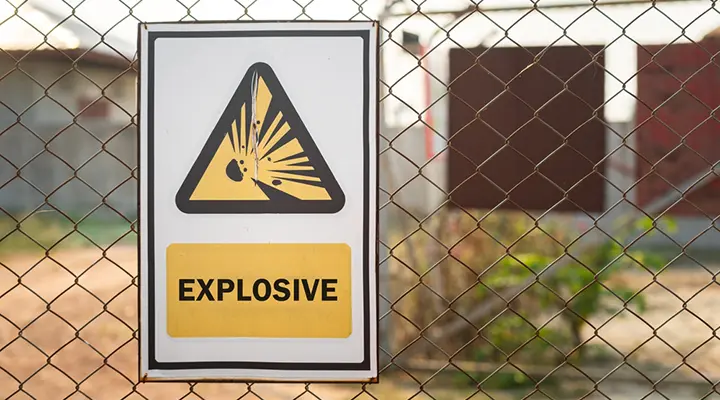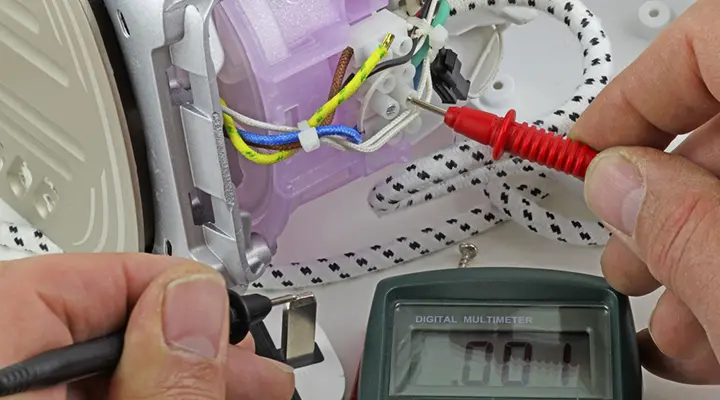All types of businesses, from offices to construction sites, rely on electrical equipment to support daily operations. The law requires these businesses to ensure the equipment is well maintained and safe to use. Yet recent figures from the Home Office reveal that faulty appliances and leads were the leading cause of workplace fires in 2023/24.
One effective way to reduce the risk of fires in the workplace is to conduct regular Portable Appliance Testing (PAT testing). Fortunately, you don’t need to be a qualified electrician to perform PAT testing.
In this article, we will look into the responsibilities of PAT testers, what their role involves, and the requirements for becoming a PAT tester.
Who are PAT testers?
PAT testers are trained individuals who assess the safety of electrical appliances. They perform Portable Appliance Testing on electrical equipment, which involves thorough visual inspections and electrical tests. Tha aim of the checks is to ensure that electrical appliances are functioning correctly and do not pose any risks to users.
What are the duties of a PAT tester?
A PAT tester’s role consists of a series of tasks, including inspection, testing, and documentation. Here is a summary of what a PAT tester does:
Visual Inspection
The PAT tester conducts a visual inspection of the appliance to identify any visible signs of damage, such as frayed cables, broken plugs or other physical defects. They also assess the environment in which the appliance is used to see if it is suitable.
Electrical Testing
The tester uses a specialised PAT testing device to conduct electrical tests. While most issues with electrical appliances can be found during visual inspection, some faults can only be detected using a PAT testing device.
Documentation and Record Keeping
A PAT tester completes an equipment test record sheet every time they inspect an appliance. They may also label the equipment they have tested to indicate whether the appliance is safe to use.
While there is no legal obligation to keep these records or label the equipment, doing so can help demonstrate that an organisation is effectively assessing and managing risks associated with electrical appliances. In the event of an incident with an electrical appliance, this documentation can serve as evidence that the organisation is compliant with the Electricity at Work regulations (1989) and the Health and Safety at Work Act (1974).
Recommendations and Repairs
If the PAT tester identifies any faults during testing, they may recommend repairs or replacements for the faulty equipment.
Certification
Some PAT testers provide businesses with a certificate to confirm that their equipment has been PAT tested. This can be important for businesses during inspections or audits.
Who can carry out PAT testing?
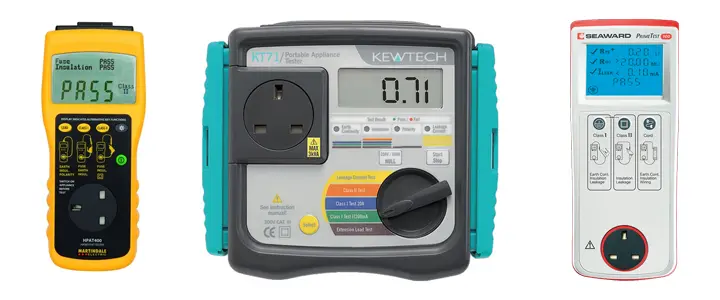
The Health and Safety Executive (HSE) specifies that the person doing PAT testing must be competent to do it. In this context, competence refers to having sufficient knowledge, skills and ability to perform PAT testing. Therefore, anyone can become qualified to perform PAT testing legally as long as they receive appropriate training.
Here are some examples of individuals who can conduct PAT testing:
- Qualified Electricians
Electricians are qualified PAT testers and have the necessary training and experience to conduct PAT testing safely and effectively.
- Self-Employed PAT Testers
Self-employed PAT testers offer their services to other organisations by carrying out PAT tests of the electrical appliances on their premises. They have the necessary competence and PAT testing equipment to perform tests.
- Trained Employees
Some organisations choose to train their employees to conduct PAT testing, which can be a cost-effective solution for businesses with many electrical appliances.
- Facilities Managers
Facilities managers may undergo PAT testing training as part of their broader maintenance role.
- Health and Safety Officers
Health and safety officers might receive training to perform PAT testing as part of their role. They can assess the safety of electrical equipment in the workplace and put in place measures to reduce risks.
- IT Technicians and Engineers
IT technicians and engineers have practical experience with machinery and tools. This gives them a strong foundation for understanding the PAT testing process.
- Business Owners and Managers
Small business owners may undergo training to become PAT testers, to ensure the safety of electrical appliances in their business premises without incurring additional expenses.
Do you need a qualification to carry out PAT tests?
Formal qualifications are not mandatory to do PAT tests, but an individual needs to have appropriate training. This training will help them understand how electricity works, the testing process, and how to carry out PAT tests safely.
While someone with adequate electrical knowledge and training can conduct visual inspections to determine whether an appliance is safe to use, an individual needs a higher level of knowledge to perform inspections that combine visual checks and testing with a specialised PAT testing device. They must be able to use PAT testing equipment correctly and understand the test results.
How to become a PAT tester?
If you want to become a Portable Appliance Tester, you can start with our accredited Online PAT Testing Course and gain RoPSA-assured certification. Our course explains how electricity works, shows you how to prepare for PAT testing and describes how to carry out the three types of checks recommended by the Health and Safety Executive.
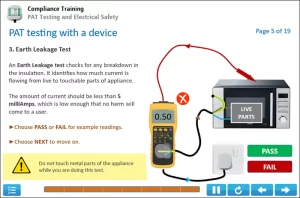
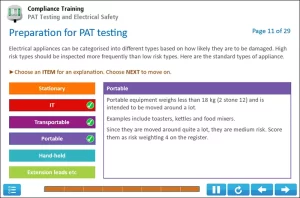
Additionally, you will require a PAT testing device to carry out electrical tests. There are a wide range of PAT testers on the market – find out what type of PAT testing device you need.

